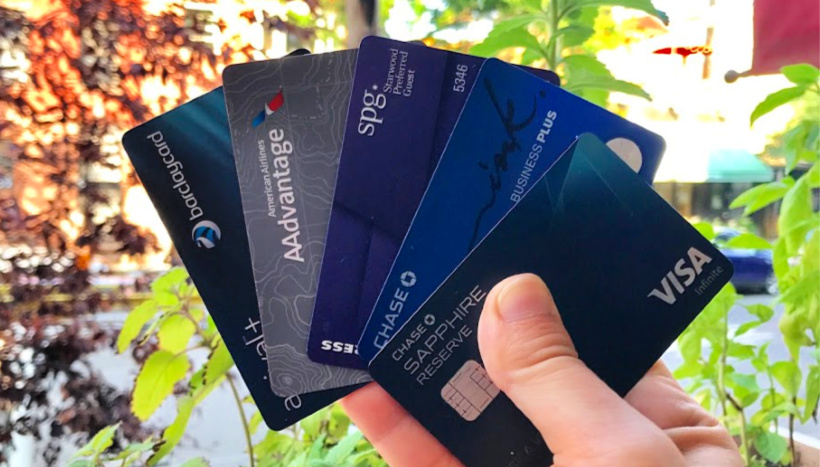If you’ve found yourself under a mountain of credit card debt and are trying to get out, it can feel like you’re stuck in a stressful endless cycle. If you’re lucky enough to get out of debt, then you know it’s never something you want to have again. And yet, those credit card offers keep showing up in the mail, tempting you with 0% APR and cashback perks. Is there a way you can bring credit back into your life in a more responsible way?
We’ve compiled the top four things you need to do to maintain a good credit history and stay out of debt. Whether you’re just starting with credit cards or are trying again after paying off your debt by using the Debt Avalanche Method, these tips will help you along the way.
Stop getting store-specific cards
Department store credit cards were useful in the past when customers would only shop at one store, gas station, or grocer and needed temporary credit to get them through to the next payday. Now that there are large brands like Visa, Mastercard, Discover, and American Express, the need to have store-specific charge accounts is gone.
Having dozens of cards with open credit lines makes tracking your debt and managing payments more difficult. That “10% off your first purchase for opening a card at checkout” may sound like a great idea at the time, but at the end of the day will be more hassle than it’s worth.
Prestige cards are only worth the cost if you use them correctly
While it might feel fancy to throw down a metal “platinum” card, those prestige cards come with hefty annual fees. So why would someone drop nearly $1,000 just on yearly fees for a credit card when there are great $0 annual fee cards available?
The trick is to leverage the specific benefits those credit cards have. There are typically perks with these expensive cards like member status at hotels, reimbursements for travel fees and incidentals, exclusive reservations at popular restaurants, and more. If you can use all of the offers effectively, you’ll find that the hefty yearly fees have paid for themselves.
The problem with these benefits, though, is that they’re only helpful for a select few people who travel multiple times a year. If you’re not someone who travels often or can make use of some of the other higher-value perks, then you’re throwing money away for vanity. Use the money you’d pay for the annual fee and put it towards something that would be of more use to you.
Understand the value of credit card points
If you have credit cards that offer points back for purchases made in certain categories, you need to know their actual value and not just the value creditors want you to know. Assuming you’re using your cards responsibly, using your points to pay off purchases or buy gift cards is a terrible way to maximize their value.
In these situations, points only equate to fractions of a penny. However, you may be able to transfer your points to airlines or hotels and use them for cheaper travel. This raises their intrinsic value and will allow you to use your points balance as leverage for something better than a $25 gift card (like a free vacation!).
Pay off your cards in full every month
The key to managing credit cards effectively is to stop thinking of them as “free money.” Maintaining good spending habits will go far towards managing your money so that you’re not suddenly drowning in debt. If you carry over a balance on your credit card every month, then you’ll be stuck paying interest on that balance. Many will think of interest rates as a necessary burden, but in reality, they’re only increasing the cost of the things you pay for with that card. Stop accepting that interest on purchases is just something you pay for and pay your cards off in full every month.
Final thoughts
Credit cards can be valuable tools that have great benefits. They can also be a slippery slope that sends you down into a hole of debt faster than you think. Take these tips to heart.







